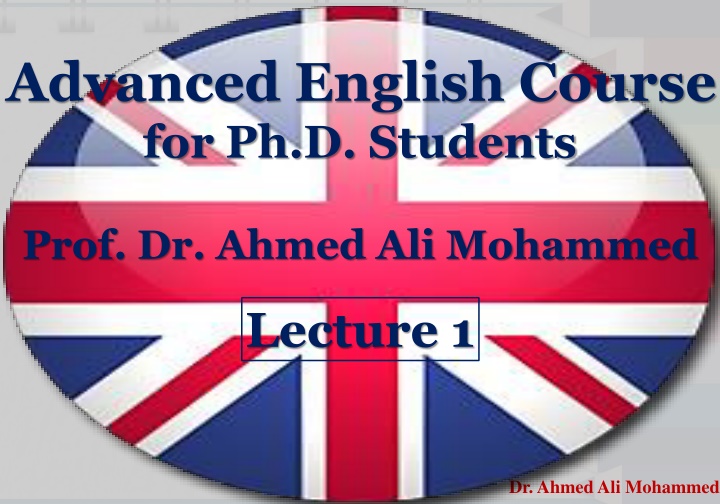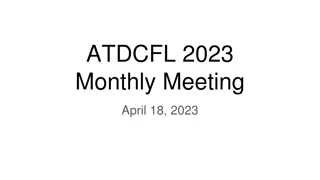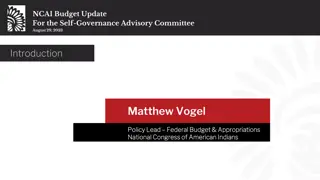
Mastering Academic Writing: Essential Guidelines by Dr. Ahmed Ali Mohammed
Dive into the world of academic writing with Dr. Ahmed Ali Mohammed as he provides insights into the formal tone, structure, and style required in colleges and universities. Learn how to craft clear, concise, and focused academic materials backed by evidence, and discover the importance of punctuation, spelling, and grammar in ensuring high-quality writing. Enhance your skills in structured and evidenced writing while understanding the significance of using plain English and maintaining a formal tone throughout your academic work.
Download Presentation

Please find below an Image/Link to download the presentation.
The content on the website is provided AS IS for your information and personal use only. It may not be sold, licensed, or shared on other websites without obtaining consent from the author. If you encounter any issues during the download, it is possible that the publisher has removed the file from their server.
You are allowed to download the files provided on this website for personal or commercial use, subject to the condition that they are used lawfully. All files are the property of their respective owners.
The content on the website is provided AS IS for your information and personal use only. It may not be sold, licensed, or shared on other websites without obtaining consent from the author.
E N D
Presentation Transcript
Advanced English Course for Ph.D. Students Prof. Dr. Ahmed Ali Mohammed Lecture 1 Dr. Ahmed Ali Mohammed
Academic Writing Dr. Ahmed Ali Mohammed
Academic Writing Academic writing has a formal tone and style, used in colleges and universities. It s what students are expected to produce for classes and what professors and academic researchers use to write scholarly materials. Academic writing is clear, concise, focussed, structured and backed up by evidence. Its purpose is to aid the reader s understanding. Good academic writing should be accurate, uncomplicated and does not require the use of long sentences and complicated vocabulary. Dr. Ahmed Ali Mohammed
Instead, good writers usually use plain English words, well structured sentences and avoid slang language, so, sentences will be simple, formal and clear. You may use subordinate clauses but keep them short. Write well structured paragraphs using the following structure: -Topic sentences. -Supporting details. -A concluding sentence. Dr. Ahmed Ali Mohammed
When you write, you need to clearly express its contents and always check for: Punctuation. Spelling. Grammar (verb tenses, agreement, etc.) Each subject discipline will have certain writing vocabulary that you will become familiar with over the course of your degree. However, there are some general characteristics of academic writing that are common in all disciplines. For example, it is: Planned and focused: answers the question and demonstrates an understanding of the subject. Dr. Ahmed Ali Mohammed
Structured: is coherent, written in a logical order, and brings together related points and material. Evidenced: demonstrates knowledge of the subject area, supports opinions and arguments with evidence, and is referenced accurately. Formal in tone and style: uses appropriate language and tenses. Dr. Ahmed Ali Mohammed
Punctuation Punctuation marks are an essential tool of organization. They are symbols used to: 1. organize the structure of written language, and 2. to indicate intonation (rise and fall/or speech pattern) and pauses to be observed when reading aloud. *Punctuation marks are also used to avoid ambiguity (vagueness). For example: woman, without her man, is nothing But it has a different meaning when you say: woman: without her, man is nothing Dr. Ahmed Ali Mohammed
Summary of punctuation rules End punctuation marks: 1. Full stop , or period (.) Used at the end of a sentence: She stood up and went away. She was angry. Used for abbreviations: Co. = (Company) Ph. D. = (Philosophy Doctor) 2. Question marks (?) Question marks are used at the end of direct questions: Where do you live? Did you do the homework? Dr. Ahmed Ali Mohammed
Use a question mark at the end of tag questions: You will help me, won t you? He likes football, doesn t he? 3. Exclamation marks (!) Used to indicate strong emotions: She s so beautiful! What a nice man! How interesting! Used after interjections: Oh! It s awful. Ops! What s up? Ops! What happened? Ops! Dr. Ahmed Ali Mohammed
Other punctuation marks: Commas (,) Commas are used between items in a series or list. The last two items of the series usually do not need a comma between them, they are separated by (and): I like spaghetti, fish, pizza and Kentucky. Commas are also used between adjectives or adverbs: I'd like to have a big, black, German car. She speaks slowly, quietly and fluently. After the street address and city in an address: 34 Hassan II Street, Rabat, Morocco. Dr. Ahmed Ali Mohammed
Before or after direct speech: He said, I hate being treated like that. I msorry , she replied. Before a coordinating conjunction (for, and, nor, but, or, yet, so): He woke up late, so he had to drive to work. However, overuse of commas can slow down the reader, and these are some examples of necessary comma usage: However, more cases should be considered before reaching a conclusion. Certain crops, for instance wheat, are susceptible to diseases. Three hundred people were interviewed, but only half the responses could be used. Dr. Ahmed Ali Mohammed
Semicolons (;) They are used to show the link between two connected phrases, when a comma would be too weak and a full stop too strong: They woke up early; then they went jogging. Use a semicolon to separate items in a series when those items contain punctuation such as a comma: They visited the Eiffel Tower, Paris; Big Ben, London; and the statue of liberty, New York. Semicolons are also used to divide up items in a list when they have a complex structure, as in a multiple citation: Dr. Ahmed Ali Mohammed
(Maitland, 2006; Rosenor, 1997; New Scientist, 2006b; University of Michigan, 2000). Colons (:) Use a colon to introduce a list: He visited three cities last summer holiday: Madrid, Roma and Athens. To introduce an idea or an explanation: He had one idea in his mind: to see her as soon as possible. To introduce direct speech or a quotation: The secretary whispered in his ear: Your wife is on the phone. Dr. Ahmed Ali Mohammed
Apostrophes () These are one of the most misused features of English punctuation. They are mainly used in two situations: Use an apostrophe to indicate a missing letter or letters in a contraction: I m fed up with his stories He s the leading authority (Note: contractions are not common in academic English) Use an apostrophe plus the letter s to show possession: My sister s friend is such a sweet girl. Dr. Ahmed Ali Mohammed
Quotation marks (/) -Single quotation marks used to emphasise a word: The word factory was first used in the seventeenth century. -Double quotation marks used to give quotations from other writers (to quote speech, sentences or words): She said, I love you. Capitalization rules Capitalization is the writing of a word with the first letter as upper-case letter (A, B, C, D,...) and the rest of the word as lower-case letters (a, b, c, d,...) Dr. Ahmed Ali Mohammed
Summary of the capitalization rules Capitalize the first word in a sentence: They arrived late. They had dinner and went to sleep. The first word in a quote: He said, You are fantastic. Capitalize I : I'm very sorry for being late. I missed the bus. Capitalize proper nouns: George was furious when he heard the bad news from Alice. Dr. Ahmed Ali Mohammed
Capitalize names of rivers, mountains: The Nile River is in Egypt. The highest mountain in the world is Mount Everest. Capitalize names of organisations: University of Baghdad Nationality words: British, French, German etc The official title of a person (the initials of someone's name) are capitalized: Dr. Mohammed (Doctor) W. Shakespeare (William Shakespeare) is a wonderful novelist Dr. Ahmed Ali Mohammed
Capitalize countries, cities, languages, nationalities: New York is more exciting than Seattle. He lives in London, but he s not English. He s Iraqi. He speaks English, French in addition to Arabic. Days of the week, months of the year, holidays are capitalized: We went to Paris on Monday and came back on Saturday. The Independence Day is in July not January. Dr. Ahmed Ali Mohammed
ThankYouFor Your Listening See You Next Lecture Dr. Ahmed Ali Mohammed









